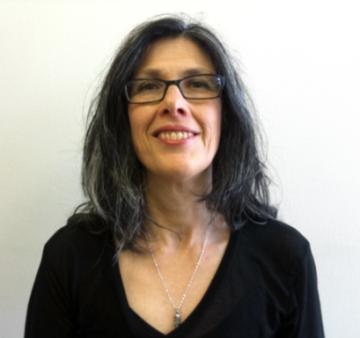“The sky above your head will be copper and the earth beneath you iron. HaShem will give the rain of your land over to dust, and sand from the sky will descend on you until you are destroyed.” (Deut. 28:23, 24)
This week’s parashah contains some of the most terrifying verses in the Torah. Curses awaiting the people Israel should they fail to observe HaShem’s mitzvot are described in shocking, protracted detail.
Preceding the list of blessings and curses (for obedience of Torah and its neglect, respectively) listed in Ki Tavo are instructions for good use of the land: putting aside a portion of one’s produce for the Levites who serve the community and for the stranger, the fatherless and the widow, so that they do not go hungry. These instructions are not for some future Messianic age in which no one will be impoverished. This text assumes a messy, unredeemed world of rich and poor, a patriarchal world in which people without a powerful man’s protection are especially vulnerable. Like the ancient Israelites, we who live in a grossly imperfect world are commanded to rise above the imperatives of power and the temptation to hoard against scarcity. We are commanded to consider how our actions affect others and to see to it that no one falls below the communal standard for a good life. Indeed, promises the Torah, if we live this way, caring for the earth and one another, then “you shall rejoice in all the goodness HaShem your God has given you, your house, you and the Levite and the stranger who are among you (Deut. 26:11).” The vulnerable are not only meant to survive; they are meant to live joyfully.
We in California have good reason to take this warning to heart. We are enduring an historic drought. The wettest period of 2014 was drier than the driest periods of every other recorded year. Scientists link California’s drought to climate change. By adopting a greenhouse emissions reduction plan, our Department of Water Resources is acknowledging the key role of human behavior in causing the situation. But private companies such as Nestle, whose CEO Peter Brabeck has caused consternation by suggesting that the human right to water ends at bare survival, continue to drain our state’s water to sell in bottles, and private golf courses continue to flourish in reclaimed deserts.
We have neglected the earth and allowed privatization of necessary resources to hold us hostage. And now, just as our Torah warned us, we are choking on dust beneath a brazen sky. At least we are not faring as poorly as the people of Gaza, where, according to Oxfam, at least 600,000 people — a third of Gaza’s population of 1.8 million — are without running water.
These ways of treating water as though it were a weapon or a means to make profit—abusing or simply ignoring the fragility and dependency of each person–are not God’s ways.
Taanit 7a: “Rabbi Abbahu said: The day when rain fails is greater than [the day of] the Revival of the Dead,for the Revival of the Dead is for the righteous only whereas rain is both for the righteous and for the wicked.” Every day, in our Gevurah prayer, we praise God’s mighty generosity in pouring rain and dew indiscriminately on the earth. The fragile cycle of the seasons, through which all mortal creation is sustained, deserves our daily appreciation, not only–perhaps not even primarily–for its sensual beauty but as the beneficence of the Creator, a sign that life continues to be provided for.
Perhaps for that reason, Rabah answered Rabbi Abbahu by teaching that the day on which rain falls is even greater than the day in which Torah was given. No Torah, No Life–and No Life, No Torah. Torah is not just for the world to come; it was given as a guide for living an embodied human life on this earth. Embodiedness, fragility, finitude, dependence on nature—and ongoing obligations to one another, the assumption of which are vital to our very lives–these are the contexts for the mitzvot and teachings of our tradition.
Rabbi Robin Podolsky serves as Adult Educator at Temple Beth Israel of Highland Park and Eagle Rock; as the Los Angeles Coordinator for the LGBT Interfaith Parents Circle of Big Tent Judaism/Jewish Outreach Institute; and as Lecturer at California State University, Los Angeles. She received rabbinic smichah from the Academy for Jewish Religion, CA, an accredited transdenominational Jewish seminary.


